The US and China exchanged plenty of critical words over the Covid-19 pandemic and Hong Kong – but they’re still buying and selling stuff too. Soybean exports from the US during one June week were the largest in at least 16 months, with the majority headed to China. This article is a summary of important China US news in June 2020.
The hard-won US-China trade deal “is over”, said Trump adviser Peter Navarro. “The China Trade Deal is fully intact,” President Trump Tweeted, as the confusion roiled markets. In 2019, Trump had pleaded with Xi Jinping for domestic political help – stressing the importance of increased Chinese purchases of soybeans and wheat in this November’s electoral outcome – and subordinated national-security issues to his own re-election prospects, former adviser claimed John Bolton claimed.
And Beijing wants him to win again, concluded Bloomberg, however much Trump argues China is rooting for Joe Biden. Amid Bolton’s allegations, Trump signed into law a Beijing-angering bill that authorises sanctions against Chinese officials over the mass internment of Uighurs, and Tweeted that the US has the option of a “complete decoupling from China”.
The US Senate approved legislation that would strengthen the US government’s ability to sanction those violating China’s commitments to Hong Kong. The Pentagon compiled a list of Chinese firms with ties to the military amid efforts to make it harder for Beijing to secure US investment and sensitive technologies. The risk of military conflict between China and the US is higher than ever, reported the South China Morning Post, yet analysts insist that Beijing wants Trump to prevail in November.
Mike Pompeo met Yang Jiechi in Hawaii, where the US-China disagreements were laid bare on Hong Kong, Taiwan and Xinjiang, despite Beijing’s announcement the dialogue had been “constructive” with agreement to improve worsening bilateral ties. The nations issued reports accusing each other of human rights violations against their own peoples. China’s ‘repression against all religions continues to intensify’, said Pompeo; the American people suffer “grave human rights disasters,” replied a Chinese government-backed group. Twitter removed 23,750 China-linked accounts for spreading disinformation.
After the US revoked Hong Kong’s status as autonomous from China, Trump has yet to specify any retaliatory measures that would directly impact Beijing. Chinese officials and state media revelled in the ongoing US protests, accusing Washington of hypocrisy. Wall Street’s top regulator backed a bill that could lead to the delisting of Chinese companies from US stock exchanges if American officials aren’t allowed to review their financial audits.
The USA increasingly looks to the Five Eyes alliance to build an anti-China coalition and support over Beijing’s Hong Kong stance. China said it would ease coronavirus restrictions to allow in more foreign carriers, shortly after Washington threatened to bar Chinese airlines due to Beijing’s curbs on US carriers.
China’s first mission to Mars launches in July or August, reaching Mars in February – the same month that Nasa’s fifth mission lands, after a July 17 blast-off. Despite no evidence that coronavirus spreads through food, China is testing the deal by asking international shippers of meat and soybeans to sign a document attesting their cargoes aren’t contaminated.

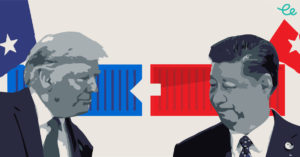
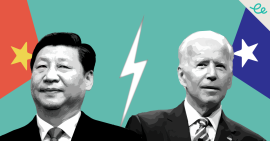
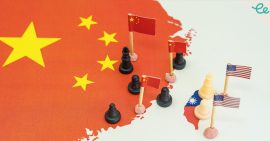
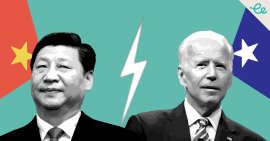
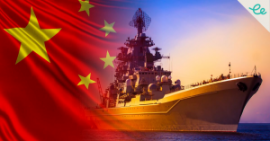

Comments are closed.